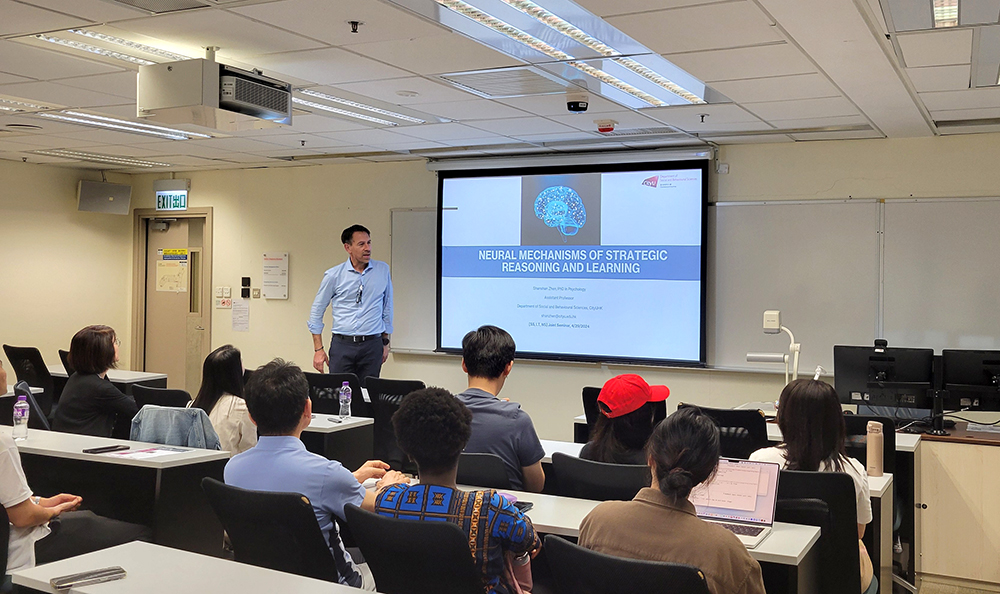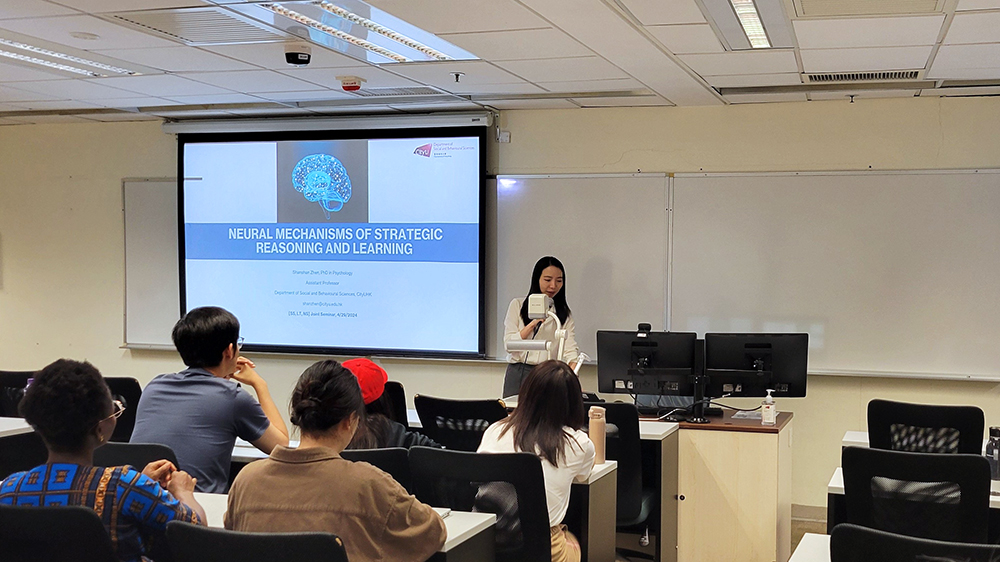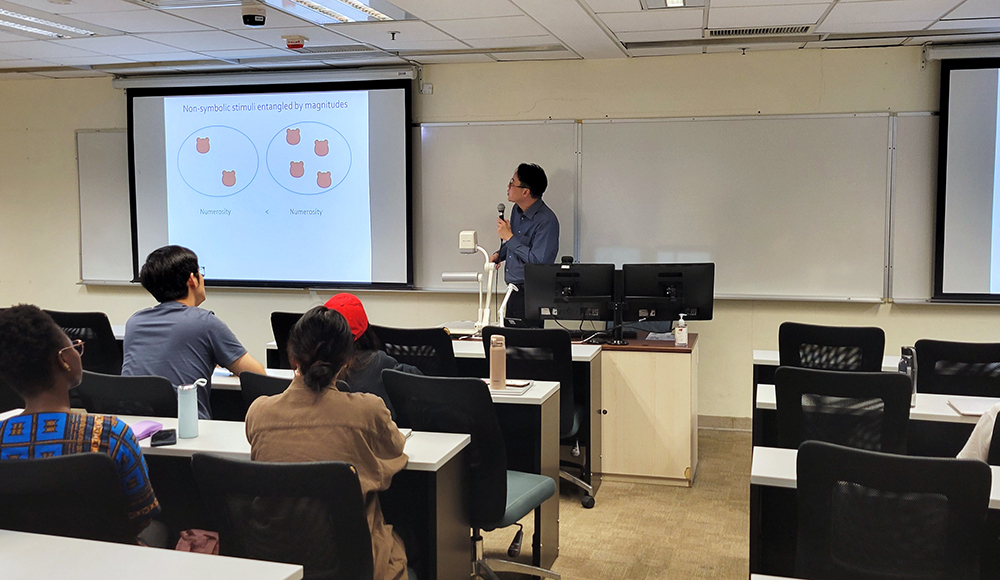

The Departments of Linguistics and Translation (LT), Neuroscience (NS), and Social and Behavioural Sciences (SS) jointly organized a seminar on 29th April 2024. Professor ZHEN Shanshan, Assistant Professor from SS first shared with the audience her research on “Neural Mechanisms of Strategic Reasoning and Learning”. In this research, Prof. Zhen delved into the intricate neural mechanisms within the human brain that facilitate strategic reasoning and learning. She also explored how humans use strategic thinking to represent the mental states of others and predict their actions, utilizing fMRI to examine the underlying neural circuits. Additionally, she shared how she examined the process of updating predictions based on feedback while making decisions, incorporating EEG and computational modeling to comprehend the adaptive learning processes.

At the seminar, Professor YUNG Wing Ho, Associate Dean of Graduate Studies, JCC & Chair Professor, NS, shared his insights on “Disentangling the Influence of Continuous Magnitudes in the Study of Number Sense in Rodents”. Prof. Yung elucidated the challenges in studying number sense in animals other than humans and described his approach to tackling this problem. He has developed an algorithm to generate sensory stimuli that not only minimizes the impact of physical magnitudes in numerosity perception but also allows their quantification. He led his team in training number-naïve rats with these stimuli and demonstrated that their numerical discrimination ability mainly relied on numerosity, despite contributions from continuous magnitudes. This numerical processing could be interfered with specifically by silencing the posterior parietal cortex via optogenetic manipulation. Furthermore, modeling this capacity by neural networks shed light on the separation of numerosity and magnitude extraction. He further explained how his studies dissected the relationship between the sense of number vs magnitude.

This seminar was the first of the tridepartmental Joint Seminar Series, signifying the concerted efforts of the organizing units for research excellence. The seminar was well received and served as a platform for different parties to exchange ideas and knowledge.